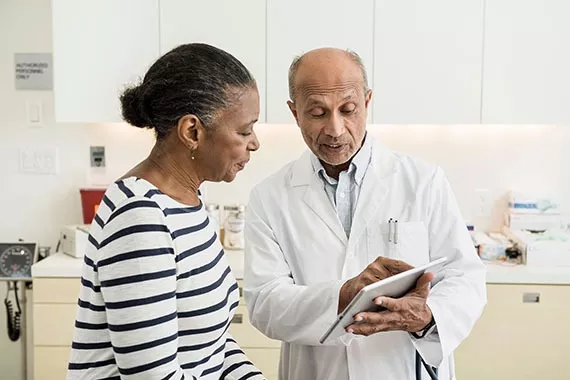Rotator cuff tendinopathy, or ‘RCT', can have a profound impact on daily life. Individuals are often expected to just live with the pain, but symptoms can have a serious effect on sleep and ability to do day-to-day tasks such as housework or even eating a meal.1
Current standard of care treatments, including nonsteroidal anti-inflammatory drugs (NSAIDs), such as ibuprofen or aspirin, only address the symptoms rather than treating the condition. That’s why we’re running a clinical trial to see if an investigational drug can help improve physical shoulder function and reduce pain in people with RCT.



